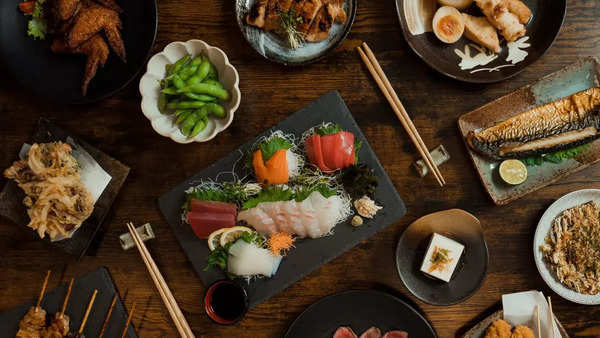Eating habits play the most vital role in our overall health and well-being. In various cultures, an approach towards food can result in much longer life along with the quality of one’s life. One among these practices, which started from Japan, is now garnering significant attention for its proven benefits. This practice encourages mindful eating and proper portion control, which brings about a healthier lifestyle. Among these traditions, the thought of ‘Hara Hachi Bu‘ is something one would note as a quite simple yet powerful method through which the key to longevity may be unlocked.

What is ‘Hara Hachi Bu’?
According to Dr. Mark Hyman in an Instagram post, ‘Hara Hachi Bu’ is an ancient tradition from Okinawa, Japan where people are known for remarkable longevity. It is the phrase to “eat until you are 80% full” and symbolizes a philosophy that would encourage people to eat mindfully and not to overfeed. This habit is quite deeply rooted in the Okinawan culture, in which people usually utter this saying before eating to remind them to heed the body’s cues to stop eating once they are satisfied but not stuffed.
Research studies show that stopping at 80% fullness has tremendous health benefits. Studies have shown that this habit increases the possibility of living longer, reducing the risk of chronic diseases, and improving digestion. The discomfort of overeating is avoided, maintaining a balanced metabolism and reducing inflammation in the body.
To understand how ‘Hara Hachi Bu’ works, consider your stomach like a gas tank. Overfilling a tank leads to spills, similarly, eating over 80% full may overwhelm the digestive system. This practice teaches respect for our natural hunger cues and helps develop mindful eating habits, which can lead to better health outcomes.
Also read: Why Thukpa is the best comfort food you must have in winter
Health benefits of ‘Hara Hachi Bu’
Better Digestion: Reduced eating will minimize bloating and discomfort as well as enable the stomach to work properly.
Lower Inflammation: Overindulgence may trigger some inflammatory reactions in the body; therefore, moderate intake reduces the likelihood.
Better Longevity: Centenarians in Okinawa have demonstrated reduced chronic diseases such as heart diseases and cancers.
How to practice ‘Hara Hachi Bu’
Eat Slowly: Gradually take your meals; it takes your brain more than 20 minutes to sense fullness.
Be in Control of Portion Size: Use less helping for meals to keep urges at bay. You may turn around for more if you need something else.
Eat Mindfully: Eat an individual bite—appreciate tastes and textures, which enhances satisfaction.

Impact
Individuals who adopt ‘Hara Hachi Bu’ tend to feel more at peace with meals. Many note fewer cravings and mood stabilisation. The ancient habit has much-needed application in fast-paced overindulgence as is found in today’s world. Okinawans are not only embracing ‘Hara Hachi Bu’ but are also establishing strong social support and a lifestyle that works for them, factors that make a big impact on health and longevity.
The habit of ‘Hara Hachi Bu’ is a reminder that minor adjustments in our eating habits will have a deep effect on our health. Therefore, if we emphasise moderation and mindfulness at mealtimes, we can potentially enhance our quality of life and longevity.

